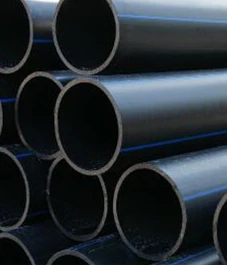Dec . 10, 2024 04:49 Back to list
hdpe pipe for drip irrigation
The Benefits and Applications of HDPE Pipe for Drip Irrigation
Drip irrigation is an efficient method of delivering water directly to the roots of plants, minimizing water wastage and maximizing agricultural productivity. One of the critical components of a successful drip irrigation system is the choice of piping material, and high-density polyethylene (HDPE) pipes have emerged as a popular choice in modern agriculture. This article explores the advantages and applications of HDPE pipes in drip irrigation.
What is HDPE?
High-Density Polyethylene (HDPE) is a thermoplastic polymer known for its high strength-to-density ratio. HDPE is produced through the polymerization of ethylene and is widely recognized for its durability, flexibility, and resistance to various environmental factors. These properties make HDPE an ideal candidate for a variety of applications, including irrigation systems.
Benefits of HDPE Pipes in Drip Irrigation
1. Durability and Longevity HDPE pipes are resistant to rust, corrosion, and chemical leaching, which significantly extends their lifespan. Unlike other materials such as metal or PVC, which can degrade over time, HDPE can withstand harsh weather conditions and various soil compositions. This resilience translates to lower replacement costs and less frequent maintenance.
2. Low Friction Loss The smooth interior surface of HDPE pipes allows for minimal friction loss, enabling water to flow more efficiently through the system. This characteristic is crucial in drip irrigation, where maintaining consistent water pressure is vital for effective moisture delivery. The reduced friction loss also helps in saving energy, as pumps require less power to maintain water flow in the system.
3. Flexibility and Ease of Installation HDPE pipes are highly flexible, allowing them to bend and conform to the contours of the field. This flexibility makes installation easier, particularly in uneven terrains. Additionally, HDPE can be joined using heat fusion techniques, ensuring leak-free connections and further enhancing the integrity of the irrigation system.
hdpe pipe for drip irrigation

4. Environmental Considerations As water scarcity becomes an increasingly pressing issue globally, utilizing efficient irrigation solutions is essential. Drip irrigation systems using HDPE pipes contribute significantly to water conservation, delivering water directly to plants and reducing evaporation and runoff. HDPE is also recyclable, aligning with sustainable agricultural practices.
5. Resistant to Biological Growth The inert nature of HDPE makes it resistant to algae and other biological growths, which can clog the irrigation system and hinder performance. This quality is particularly beneficial in agricultural settings where cleanliness in irrigation can significantly affect crop yield and health.
6. Cost-Effective Solution Although the initial investment in HDPE piping may be higher than some other materials, the long-term savings in maintenance, replacement, and water efficiency can make it a more cost-effective choice for farmers. The durability and longevity of HDPE pipes, combined with their low friction loss, ultimately lead to lower operational costs.
Applications of HDPE Pipes
HDPE pipes are utilized in various agricultural applications, including
- Agricultural Drip Irrigation Farmers benefit from the efficient water delivery system that HDPE pipes provide, whether for fruit orchards, vegetable farms, or field crops. - Landscape Irrigation HDPE’s flexibility and durability make it an excellent choice for landscaping projects, ensuring that gardens and lawns receive adequate moisture. - Greenhouse Irrigation In controlled environments like greenhouses, HDPE pipes facilitate precise irrigation, supporting optimal growing conditions. - Erosion Control Utilizing HDPE pipes in systems designed for erosion control, such as drainage systems, helps manage excess water and protect soil integrity.
Conclusion
In summary, high-density polyethylene (HDPE) pipes are a superior choice for drip irrigation systems due to their durability, efficiency, and environmental benefits. As agriculture continues to evolve and the need for efficient water use escalates, the adoption of HDPE piping in irrigation can support sustainable farming practices and contribute to enhanced crop yields. By investing in reliable materials like HDPE, farmers can optimize their irrigation systems and work towards a more sustainable future.
-
High-Quality PPR Pipes and Fittings Durable ERA PPR & PVC PPR Solutions
NewsJul.08,2025
-
Black HDPE Cutting Board - Durable, Non-Porous & Food Safe HDPE Plastic Cutting Board
NewsJul.08,2025
-
High-Quality CPVC Panel Durable HDPE & PVC Panels Supplier
NewsJul.08,2025
-
Double PE Welding Rod Supplier - High Strength, Durable & Versatile Welding Solutions
NewsJul.07,2025
-
High-Quality PVC-O Pipe Supplier Durable 75mm PVC Pipe & Connections Leading PVC Pipe Company
NewsJul.07,2025
-
HDPE Drainage Pipe Supplier – Durable & Corrosion-Resistant Solutions
NewsJul.06,2025

